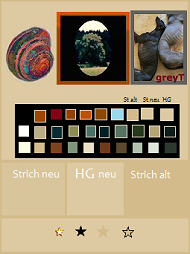 ooooooooo
ooooooooo 2. MENSCH
2. MENSCH 2.1. Infostand
2.1. Infostand 2.2. Links
2.2. Links 2.3. Teestube / Cafe
2.3. Teestube / Cafe 2.3.1. Schwarzes Brett
2.3.1. Schwarzes Brett 2.3.2. Computer & Netz
2.3.2. Computer & Netz 2.3.3 Séparée
2.3.3 Séparée 2.4. Bilder, Videos & Pic's
2.4. Bilder, Videos & Pic's 2.5. Bibliothek
2.5. Bibliothek 2.5.1. Medien - deutsch
2.5.1. Medien - deutsch 2.5.2. Medien - englisch
2.5.2. Medien - englisch 2.6. Greytalk
2.6. Greytalk 2.7. Veranstaltungen
2.7. Veranstaltungen 2.7.1. zu spät..
2.7.1. zu spät.. 2.8. Reise&bestimmungen
2.8. Reise&bestimmungen 2.9. Urlaubsbetreuung
2.9. Urlaubsbetreuung  2.10. Nähen & Basteln
2.10. Nähen & Basteln 2.11. Herrgottswinkerl
2.11. Herrgottswinkerl 3. HUND
3. HUND 3.1. Der Renngrey
3.1. Der Renngrey 3.2. Zucht
3.2. Zucht 3.3. Aufzucht
3.3. Aufzucht 3.4. Ernährung
3.4. Ernährung 3.5. Haltung & Pflege
3.5. Haltung & Pflege 3.6. Erziehung*Verhalten
3.6. Erziehung*Verhalten  3.7. Training
3.7. Training 3.8. Gesundheit
3.8. Gesundheit 3.8.1. Impfung
3.8.1. Impfung  3.8.2. Greyhoundsperre
3.8.2. Greyhoundsperre 3.8.3 Verletzungen
3.8.3 Verletzungen 3.8.4 Krankheiten
3.8.4 Krankheiten 3.8.4.1. Erbkrankheiten
3.8.4.1. Erbkrankheiten 3.8.5. Parasiten
3.8.5. Parasiten 3.8.6. Geschwüre - Krebs
3.8.6. Geschwüre - Krebs 3.8.7. Schulmedizin
3.8.7. Schulmedizin  3.8.8. Alternativmedizin
3.8.8. Alternativmedizin 3.8.9. Chiro & Massage
3.8.9. Chiro & Massage 3.8.10. Hexenküche
3.8.10. Hexenküche 3.9. Doping
3.9. Doping 4. LEISTUNG & PROFIT
4. LEISTUNG & PROFIT 4.1. Coursing & Jagd
4.1. Coursing & Jagd 4.2. Bahnrennen
4.2. Bahnrennen 4.3. Rennthemen D-A-CH
4.3. Rennthemen D-A-CH  4.4. Rennen kommerziell
4.4. Rennen kommerziell 4.4.1. Renngeschehen Irl
4.4.1. Renngeschehen Irl 4.4.2. Renngeschehen UK
4.4.2. Renngeschehen UK 4.4.3. Rennthemen USA
4.4.3. Rennthemen USA 4.4.4. Rennthemen Aus
4.4.4. Rennthemen Aus 4.4.5. Wettgeschehen
4.4.5. Wettgeschehen 4.5. Was sonst noch geht
4.5. Was sonst noch geht 5. TIERHEIM
5. TIERHEIM ** 5.1. Entlaufen **
** 5.1. Entlaufen ** 5.1.1. Streuner zurück
5.1.1. Streuner zurück 5.2. Greys in D,A,Ch
5.2. Greys in D,A,Ch 5.3. Greys in Europa
5.3. Greys in Europa 5.4. Rehomed
5.4. Rehomed 5.5. Orgas/Vereine/Inis
5.5. Orgas/Vereine/Inis 5.6. Mfg. für Hunde
5.6. Mfg. für Hunde 5.7. Was bisher geschah
5.7. Was bisher geschah 6. TIER- & ARTENSCHUTZ
6. TIER- & ARTENSCHUTZ 6.1. Greyhounds
6.1. Greyhounds 6.2. Haustiere allgemein
6.2. Haustiere allgemein 6.3. Natur- & Artenschutz
6.3. Natur- & Artenschutz 6.4. Horrorecke
6.4. Horrorecke
Jan - 6.-8.1.17 - LBV/NABU-Vogelzählung - Stunde der Wintervögel
Begonnen von Oval 5, 06.01.2017, 22h34
vorheriges - nächstes
Benutzer-Aktionen





